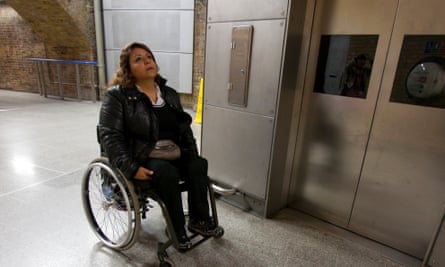Alongside the economy and immigration, the NHS has emerged as a key battleground in the EU debate. That is because the leave campaign decided early on to deploy the health service as a core argument in their plea to voters. Leave leaders Boris Johnson and Michael Gove have said consistently since campaigning began in April that Brexit could free up up to £8bn extra a year to spend on the NHS.
Leaving the EU would not, however, provide more money to spend on the NHS, according to the Institute of Fiscal Studies. “Rather, it would leave us spending less on public services, or taxing more, or borrowing more.”
Labour has dismissed the leave campaign’s claim of a bigger NHS budget as “misleading, simplistic and complete and utter nonsense”. Its own analysis concludes that a post-Brexit economic slump could force the government to cut the Department of Health’s budget by £10.5bn – the equivalent of every hospital in England having to shed 1,000 nurses and 155 doctors.
And last week, Tory MP and former GP Sarah Wollaston defected from the Vote Leave campaign saying its claim that Brexit would unlock up to £350m a week for the NHS “simply isn’t true”.
Once Britain’s EU rebate is factored in, the maximum extra that could be spent on the NHS would be £1.4bn, which would not even cover its £2.45bn deficit, say health academics at the London School of Economics and Imperial College London. In addition, the Economist Intelligence Unit (EIU) estimates that “should the UK vote to leave the EU, by 2020 healthcare spending would be £135 lower per head than if the UK were to remain in the EU. This is in addition to the £22bn efficiency savings the NHS [in England] is still expected to deliver by 2020.” The EIU has also cited other “substantial risks” to healthcare from Brexit. The future of the 10,000 NHS doctors and other health professionals who come from EU countries would become more uncertain. And the UK, a leader in the global pharmaceutical trade, would become “just one isolated market that cannot be entered using the EU centralised drug authorisation pathway”.
Britain would also no longer have any influence over the European Medicines Agency, the regulator that approves drugs for use within the EU. Medical research could be hit too, because Britain currently gains disproportionately from current funding streams.
The Faculty of Public Health also points out how EU membership has brought benefits such as cleaner air and water and pan-European joint working on threats to health that cross national borders, such as antibiotic resistance and combating pandemics.
The FPH lists other advantages too. “Health and safety at work legislation is basically European; likewise legislation ensuring the safety of food, medicinal products and medical devices. The social chapter mandates generous maternity and paternity leave, guaranteed holidays, the 48-hour working time directive; equal rights for part-time workers and protection against unfair dismissal. All are powerful social determinants of health from which UK citizens have benefited.
“Once outside the EU, the UK would be free to sacrifice them in the name of efficiency or austerity, or further develop worker protections if the political will is present”, it says. So leaving the EU would be bad for our health.
Denis Campbell, health policy editor
Social care: Recruitment crisis could be exacerbated by exodus of EU migrant workers

The vision of tens of thousands of care workers packing their bags and heading home to other EU states after a British withdrawal is one that fills the hearts of many social care employers with dread.
Recruitment problems in the sector, where vacancy rates constantly average more than 5%, are already so severe that it is not uncommon for care homes and homecare agencies to display “Hiring now” banners. Anecdotally, UK citizens are seen as reluctant to apply for roles typically paying little more than the £7.20 minimum hourly wage at age 25 or over.
An estimated 6% of jobs in the sector are filled by EU migrants. That may not sound much, but the vast size of the social care workforce means that this figure equates to 80,000 people in England alone. Free movement of labour across the EU is “very helpful” to social care employers, says Martin Green, chief executive of Care England, which represents leading care providers.
Figures from the National Minimum Dataset for Social Care, compiled by sector skills agency Skills for Care, suggest there are more than 1.3 million social care jobs in England, excluding personal assistants employed direct by people with care needs, of which 82% are filled by UK nationals and a further 12% by non-EU citizens.The loss of non-British EU workers would be felt far more in some regions than in others: their proportion of the social care workforce doubles from the average 6% to 12% (20,000 jobs) in London and rises to 10% (21,000) in the rest of the south-east, but is as low as 1% (1,000) in the north-east.
Could they be replaced by workers from the rest of the world? Green says: “Given that one of the planks of the Brexit campaign is to reduce immigration, I think it highly unlikely that they would relax controls on people entering the country to be part of the care workforce.”
Introduction this year of the £7.20 “national living wage”, a 50p increase on the previous floor, has put strain on many care employers who say they cannot pay above the minimum because of below-cost fees paid for state-funded care by local councils. But the move was ordered by the UK government and had nothing to do with the EU.The European working time directive limits working hours to an average 48 a week and guarantees rest breaks and leave. These have proved important backstops in a sector where exploitation of staff has not been unknown.
The European convention on human rights, given statutory force in the Human Rights Act (HRA), has played an increasingly important part in social care. Last year, a care home in Hartlepool, Admiral Court, was shut down after inspectors found it was breaching residents’ rights to liberty and non-discrimination.
The inspectorate, the Care Quality Commission, has explicitly adopted a “human rights approach” to its work because, it says, “respecting diversity, promoting equality and and ensuring human rights” should be part of its core purpose.While adherence to the convention is distinct from EU membership, – and the government separately plans to replace the HRA with a British bill of rights - Brexit could mean that any future equality and human rights protections agreed by the EU would not be binding on the UK.
David Brindle, public services editor
Disability: People fear a bonfire of their hard-won rights
For many influential figures in the disability movement, staying in the EU is not just about protecting historical gains, won and strengthened in areas like anti-discrimination law and workplace rights, but also benefiting from future progress.
The Disability Discrimination Act, which was passed by the UK parliament in 1995, was extended by an EU directive adopted five years later that required small businesses to make “reasonable adjustments” in the workplace and it added new protections against disability-related harassment.

According to the TUC, that small business exemption, if still in place today, would mean around 15% of the workforce were not be covered by the act’s protections. Remain supporters argue that not only did EU membership enhance existing rights for disabled workers, it also guarantees those rights for as long as the UK is part of the EU, because the UK government cannot undercut the minimum standards set out in the directive. “The EU acts as a double-lock on our own law,” says independent disability rights expert, Neil Crowther.
Other positive impacts of EU membership include the 2006 regulation that prohibits airlines from refusing reservations or boarding to disabled passengers because of reduced mobility and disability. It also requires that airports provide free assistance to disabled passengers on arrival.
A draft EU Accessibility Act would impose on EU states common access requirements on goods and services, from computers to banking services, transport, telephones and e-commerce. Supporters argue that these benefits would never be enacted by a post-Brexit UK government. Disability rights campaigner and crossbench peer, Jane Campbell, warned last week that a go-it-alone Britain would banish disabled people to the margins of British life once more.
What disability rights would look like outside the EU is necessarily speculative. If, as some assume, a post-Brexit government wants to leave the EU but remain in the European Economic Area, it may be required to abide by EU minimum standards on access requirements, for example. But it would have no say in the drawing up of those standards.
There are fears that a post-Brexit UK government would make “a bonfire” of many hard-won disability rights – which are often characterised by rightwing politicians as “red tape”. Some disability activists on the left argue, however, that the EU has promoted economic policies such as privatisation and austerity that have hit disabled people hardest.
The EU, however, has had no jurisdiction over the UK government’s welfare reform agenda. So cuts to a range of benefits for hundreds of thousands of disabled people such as the Independent Living Fund, disability living allowance – as people transfer to personal independence payment – and employment and support allowance and increased conditionality to receive benefits will not be affected by the referendum result.
Many older campaigners who have fought in the equality battles of the past few decades, are pro-Remain. As John Evans, one of the founders of the UK independent living movement, told a Westminster seminar last week: “We want to protect Europe’s very significant achievements for disabled people, and prevent others from being taken away from us, and provide a platform for the further improvements for our future.”
Patrick Butler, social policy editor






